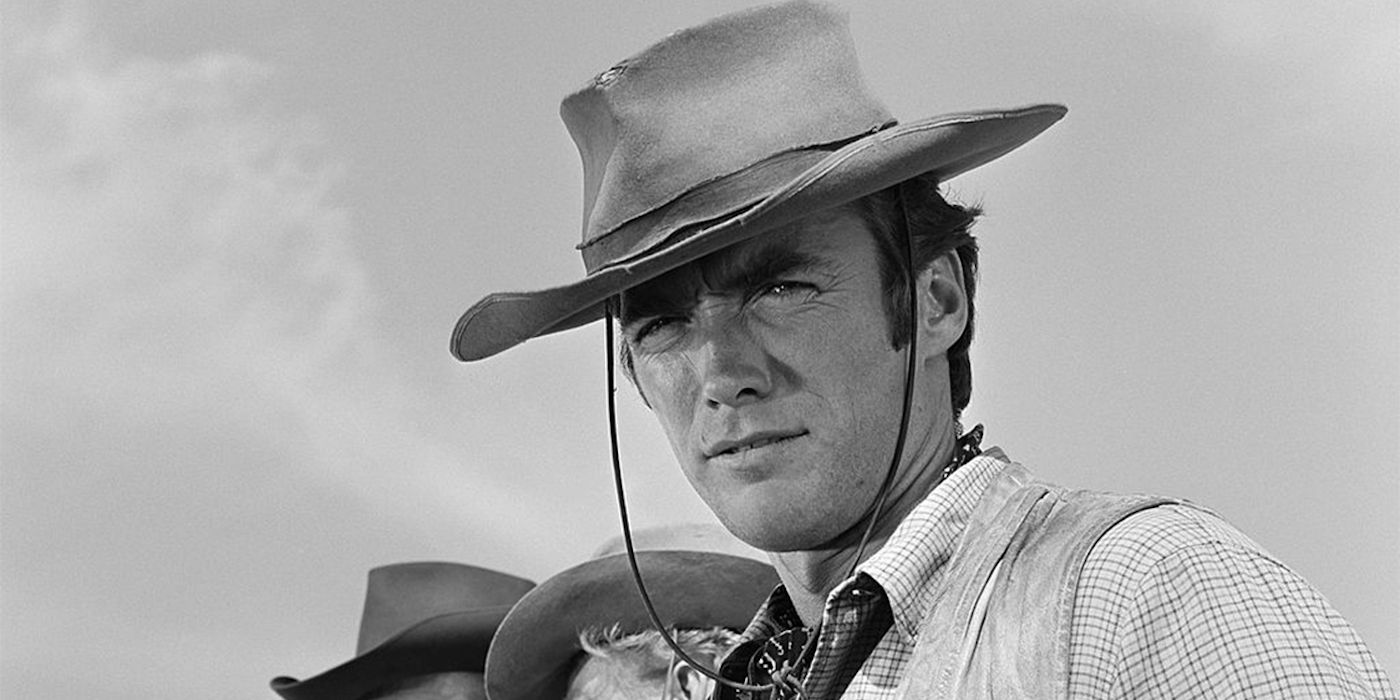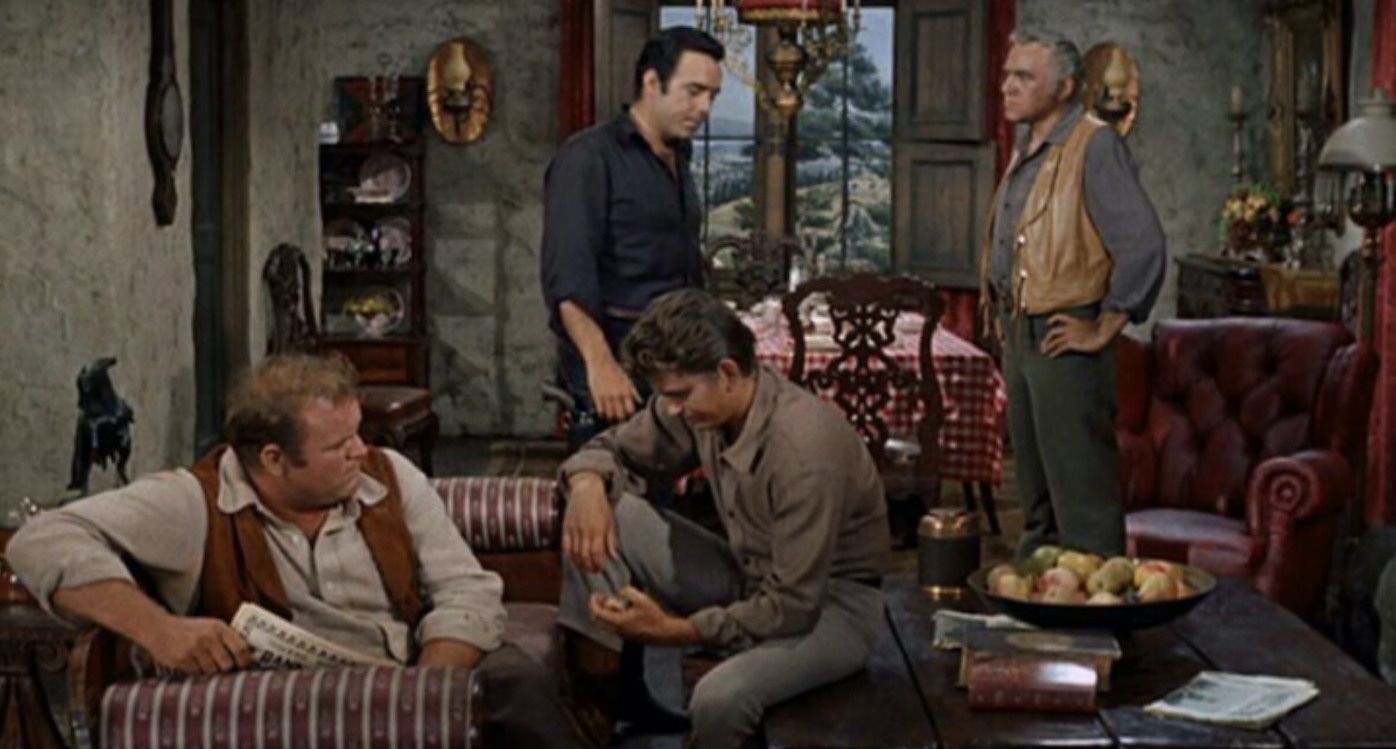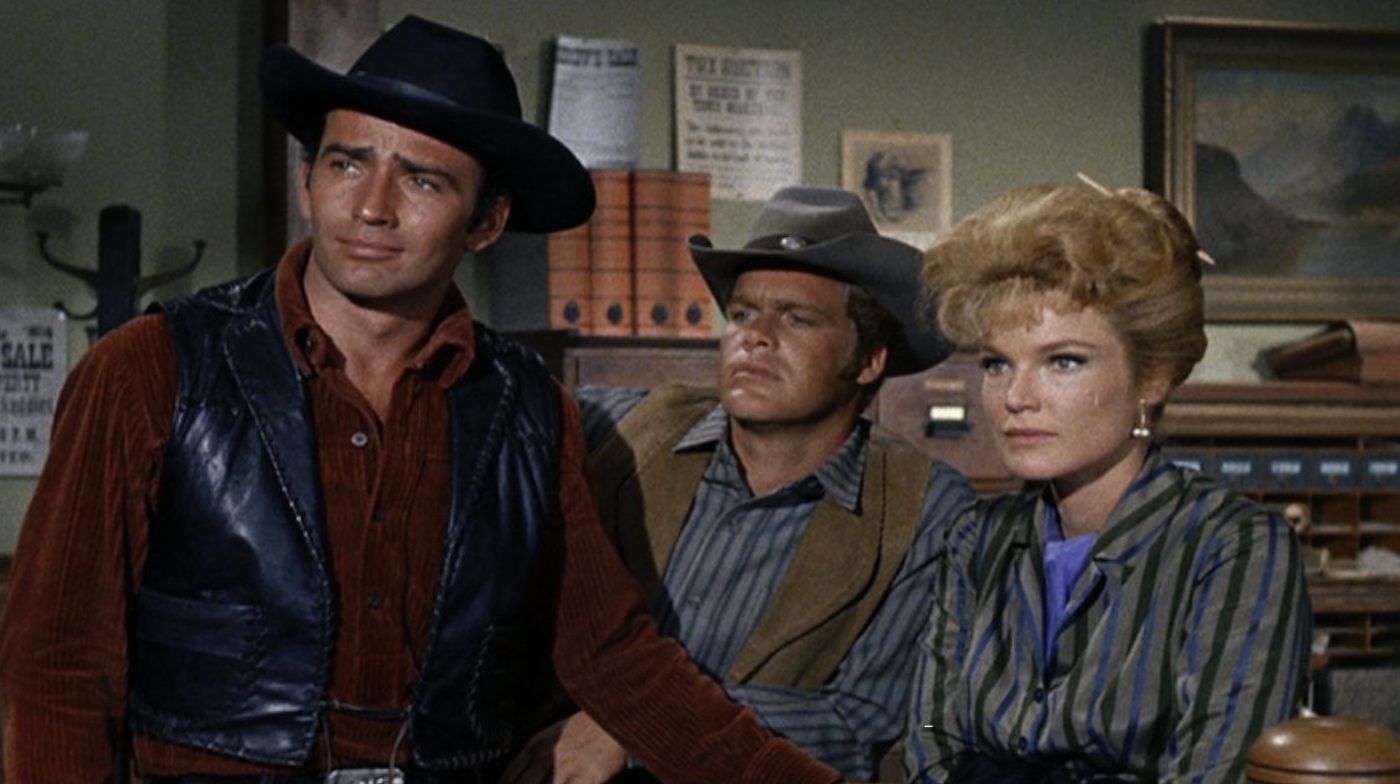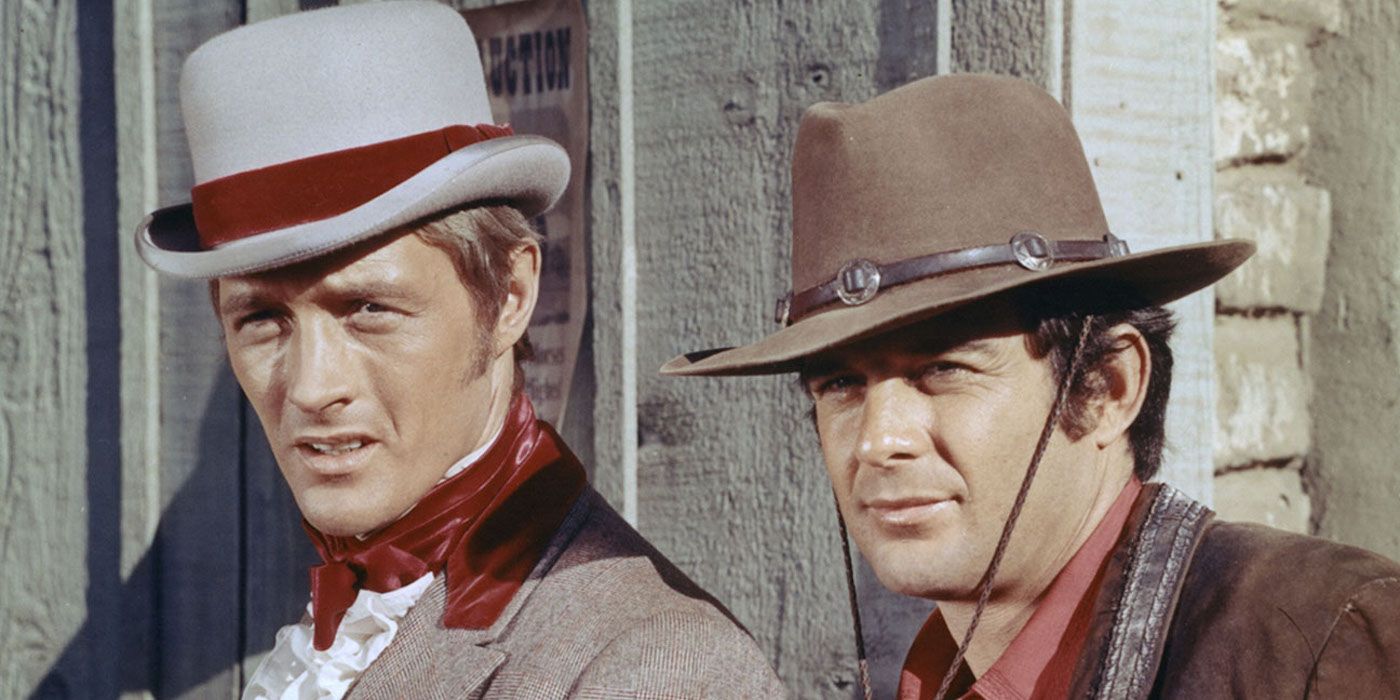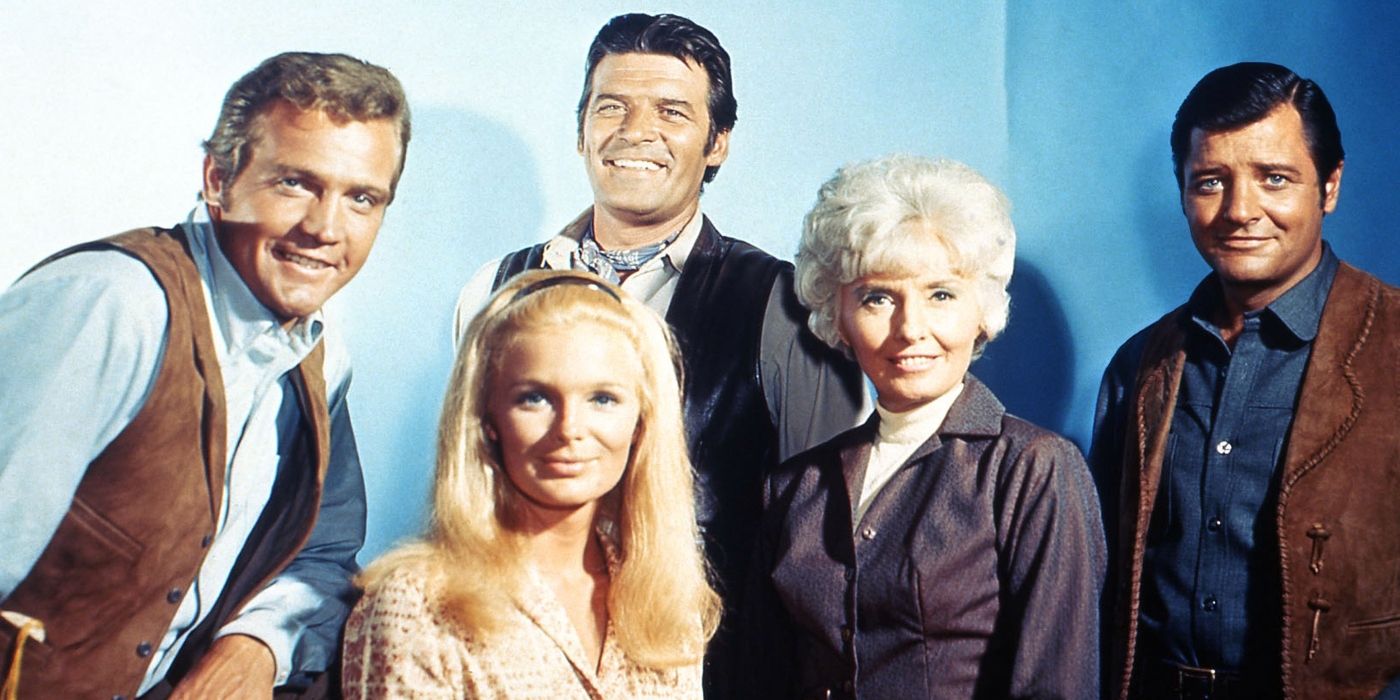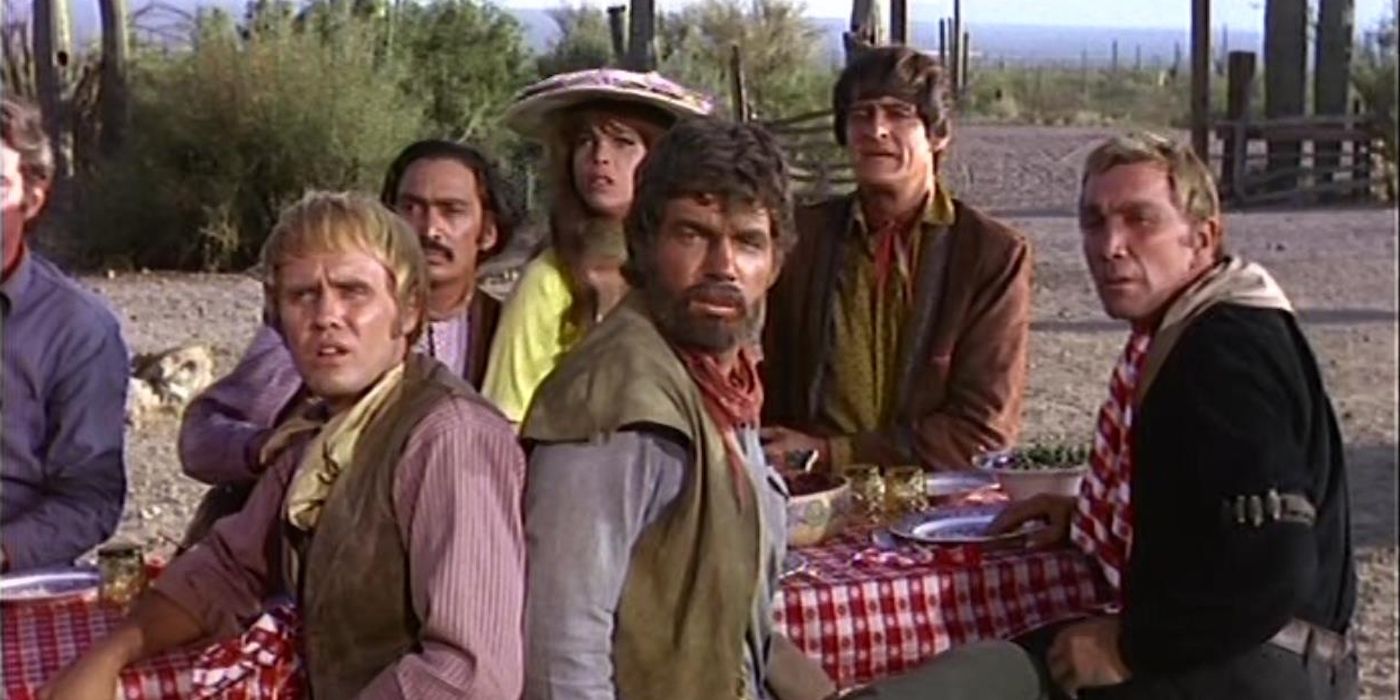These days, Taylor Sheridan is taking over TV with his hit neo-Western series Yellowstone. The Kevin Costner-led drama, as well as its prequel series 1923 and 1883 have lassoed audiences' attention, though this Paramount universe wouldn't exist without the shows that came before it. Westerns once regularly dominated the box office, and many of the genre’s long-running TV series often topped the nightly ratings in decades past. A number of these melodramas helped pave the way for — and seemed to have partially inspired — Taylor Sheridan's popular series, and are just as worthy of a binge as the Dutton family drama.
'Rawhide'
Running on CBS from 1959 to 1965, Rawhide is remembered as the show that introduced the world to a rugged, handsome future star named Clint Eastwood. As the young and often hot-headed trail hand, Rowdy Yates, Eastwood was a scene-stealing supporting actor for most of the show’s run. Following a very long cattle drive (they didn’t reach their destination until episode 67) under the steady hand of trail boss, Gil Favor (Eric Fleming), Rawhide proved unique in how it straddled the sensibilities of two decades. The cowboys encountered all kinds of folks on the trail and in the towns they passed, touching on some surprisingly difficult subjects such as drug addiction (when an ex-soldier wrestles with a morphine habit), racism, and the complex aftermath of the Civil War. The trail boss opens each still-watchable episode with a voiceover containing that installment’s themes, many of which echo the complicated moral codes of the ranch hands in John Dutton’s employ.
'Bonanza'
One of the longest-running TV shows of all time, at its peak, Bonanza was also the number-one show on television. It ran on NBC from 1959 to 1973, when Western shows lost their vogue and were seen as stuffy and old-fashioned as cultural mores shifted. Starring Lorne Green as Ponderosa Ranch patriarch Ben Cartwright, Yellowstone’s complex inter-family drama seems to have lifted aspects of Bonanza’s premise. Focusing less on ranch and cattle business than on moral dilemmas, the narrative centered on Ben Cartwright’s three sons by three different wives, educated architect Adam (Pernell Roberts), gentle giant Hoss (Dan Blocker), and the young, tempestuous Little Joe (Michael Landon). The characterizations of Yellowstone’s Dutton siblings — warring Beth (Kelly Reilly) and Jamie (Wes Bentley), soft-spoken but tough Kayce (Luke Grimes), and honorary Dutton son Rip (Cole Hauser) — seem to have been at least partially inspired by the Cartwright boys.
'The Virginian'
As popularized by Clint Eastwood’s “Man with No Name” films that he made with director Sergio Leone, the mysterious stranger trope is a Western staple. Like Alan Ladd in Shane, the title character’s past in The Virginian remained shrouded in mystery. Running on NBC from 1962 to 1971, James Drury starred as the foreman of the Shiloh Ranch, an upstanding and tough cowboy. The main character was loyal to the ranch’s owner, Judge Garth (Lee J. Cobb, a prominent star character actor of the 1950s), who served as something of a father figure. There are strong echoes of this dynamic in the relationship between Yellowstone’s Rip and John Dutton. Like Rip, the Virginian hews to a strict moral code of his own, which always revolves around his service to the ranch.
'Lancer'
This short-lived (1968-1970) CBS series might have remained little-known if it wasn’t for Quentin Tarantino. In Once Upon a Time in Hollywood, Tarantino dramatized the making of Lancer’s pilot, with Leonardo DiCaprio’s fictional Rick Dalton guest starring as the villain. Lancer’s plot had shades of Bonanza, with half-brothers Johnny “Madrid” Lancer (James Stacy) and Scott Lancer (Wayne Maunder) reuniting and returning to their father’s San Joaquin Valley ranch. Lancer was something of an outlier among Western shows, with its serious tone and attempt at more realistic costumes and settings. Yellowstone seems to have taken some inspiration from the setup of the Boston-educated Scott who, like Jamie Dutton, must contend with his long-absent tough-guy brother (similar to Kayce but perhaps closer to Beth) as they try to keep their aging father’s ranch together.
'The Big Valley'
Another San Joaquin Valley-set series, The Big Valley ran on ABC from 1965 to 1969 and featured several major female characters, setting it apart from its cowboy and ranch hand-focused contemporaries. Barbra Stanwyck, who starred in the film noir classic, Double Indemnity, plays the matriarch of the Barkleys, a wealthy Stockton, California ranching clan. Featuring future TV stars, Lee Majors (The Six Million Dollar Man) and Linda Evans (Dynasty) as Heath and Audra Barkley, The Big Valley’s soap opera-level intrigue helped set a prime-time template for the type of rubbery drama Yellowstone often utilizes. The early seasons featured a conflict between Majors’ illegitimate, temperamental Heath and Evans’ strong and confident Audra which will seem very familiar to Yellowstone fans who have followed the toxic relationship between Jamie and Beth Dutton.
'The High Chaparral'
Running on NBC from 1967 to 1971, The High Chaparral’s setup closely mirrors Yellowstone’s. "Big John" Cannon (Leif Erickson) and his brother, Buck (Cameron Mitchell), start the titular cattle ranch on the border of Mexico and Arizona Territory with Big John’s wife and son. After hostile Apaches kill Big John’s wife, he’s forced into an uneasy alliance with Don Sebastián Montoya (Frank Silvera), who owns the neighboring land across the border and seals the pact by marrying Don Sebastián’s daughter, Victoria (Linda Cristal). The High Chaparral (named for the abundant desert brush plant) eventually devolved from a serious dramatic series into a show about the hijinks of Buck and Don Sebastián’s troublemaker son, Manolito, but the initial attempt at a complex look at relations between American and Mexican ranchers echoes the Duttons’ conflicts with the Native Americans who once owned their land.
The Big Picture
- Westerns have been a long-standing and popular genre in both film and television, with shows like Rawhide, Bonanza, and The Virginian paving the way.
- These shows had complex characters and storylines, tackling difficult subjects such as drug addiction, racism, and the aftermath of the Civil War.
- Yellowstone, with its inter-family drama and moral dilemmas, seems to have drawn inspiration from these classic Western TV shows.


